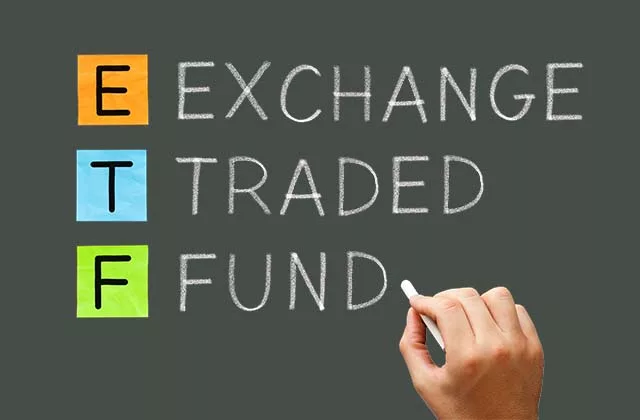An Exchange Traded Fund (ETF) is a fund that trades on an exchange, identical to stock and replicates the portfolio and efficiency of a publically out there Index. ETFs supply low-expense funding resolution. Here we will discuss what is ETF? ETF Types and Benefits.
How one can choose ETFs and Index Funds?
There are primarily three parameters that buyers ought to have a look at when investing in ETFs:-
- Complete Expense Ratio: Low threat (arbitrage theoretically means threat free earnings)
- Monitoring error: Monitoring error is the deviation between the index return and the ETF return. This is a vital efficiency parameter as a result as an investor you’re truly investing within the index.
- Liquidity: That is an especially necessary issue for ETFs as a result of not like mutual funds, ETFs are purchased and bought within the inventory exchanges. If an ETF shouldn’t be very liquid, you could not discover sufficient patrons while you wish to promote your ETFs.
ETF Schemes
A few of the in style ETF class schemes are as follows:-
- Index ETF
Index ETFs are the most typical of all ETF product choices. Its goal is to trace a selected market index like Sensex, Nifty, BSE 100, Nifty 100, and many others. Index ETFs put money into a basket of shares that replicate the Index the ETF goals to trace. When investing in an Index ETF you must anticipate getting the index returns that your ETF is monitoring, nothing extra or nothing much less.
- Gold ETF
Buyers should buy gold as a monetary asset within the type of Gold ETF. Gold ETF is a change traded fund that goals to trace the value of gold out there and has the identical worth as that of pure 24-carat bodily gold. Like shares of an organization, the models of the Gold ETFs are additionally traded on the inventory change.
- Bank ETF
Bank ETFs invest in a basket of banking shares listed on the inventory exchanges.
- Worldwide ETFs
A Worldwide ETF invests primarily overseas based mostly on securities. These ETFs could observe international markets or observe a country-specific benchmark index. These ETFs generally are a good funding possibility if you wish to diversify your investments into overseas securities.
- Liquid ETF
Liquid ETFs put money into a basket of brief time period Authorities securities, name cash or cash market devices of brief time period maturities. The target of liquid ETFs is to boost returns and cut back worth threat.
Why put money into ETFs?
- ETF could also be a better option
There is a selection of things that play an important position in figuring out the future efficiency of a mutual fund scheme, for instance – the fund supervisor’s observe file, AMC observes file, long-run efficiency, and many others. It takes appreciable abilities to establish an excellent fund that will outperform its friends and likewise the market sooner or later.
Exchange Traded Funds, however, track solely the Index that it’s benchmarking and subsequently, there may be the little scope for outperformance or underperformance. In the event you intend for market/ Index returns on your funding, the ETFs could also be a sensible choice.
- Efficiency is the main target
The indices, which by their technique of development based mostly on market capitalization, remove or at the least, cut back a load of underperformers within the index portfolio.
Subsequently, by extension ETFs additionally, remove or at the least cut back a load of underperformers from their portfolio.
- Unsystematic Threat
Mutual funds are topic to two sorts of threats – Systematic and Unsystematic dangers.
The systematic threat is unavoidable as a result of equities as an asset class being unstable. Each ETFs and actively managed funds are topics of market danger.
An unsystematic threat is a corporate particular threat or sector particular threat. Although mutual fund’s intention to cut back unsystematic threats by diversifying its portfolio throughout shares and sectors, they nonetheless have some residual unsystematic dangers as a result of actively managed funds could also be over-weight on sure shares and sectors versus the index.
Exchange-Traded Funds should not have any unsystematic threat as a result of they merely observe the index; subsequently, it’s a good funding possibility if you wish to completely keep away from unsystematic threat.
- Low value
The expense ratio of ETFs is way decrease than their mutual fund counterparts. The expense ratios of ETFs might be as little as 0.25%, in comparison with the expense ratio of mutual funds which are often within the vary of 1.5% – 2.25%.
Except the mutual funds generates appreciable alpha, in the long run, they could not be capable of beating the ETF returns in the long run.
- Simplicity
ETFs deliver simplicity to your investing in comparison with actively managed funds. You should not have to research previous efficiency or perceive the fund supervisor’s funding model or how the fund has achieved in up and down markets and many others. Most ETFs observe the massive cap indices like Nifty, Sensex, BSE – 100, Nifty 100, Nifty Subsequent 50 and many others. You’ll be able to merely choose an index and put money into a low value ETF, which tracks that index and your job is finished.
Investment Tips for Beginners. - Click Here

